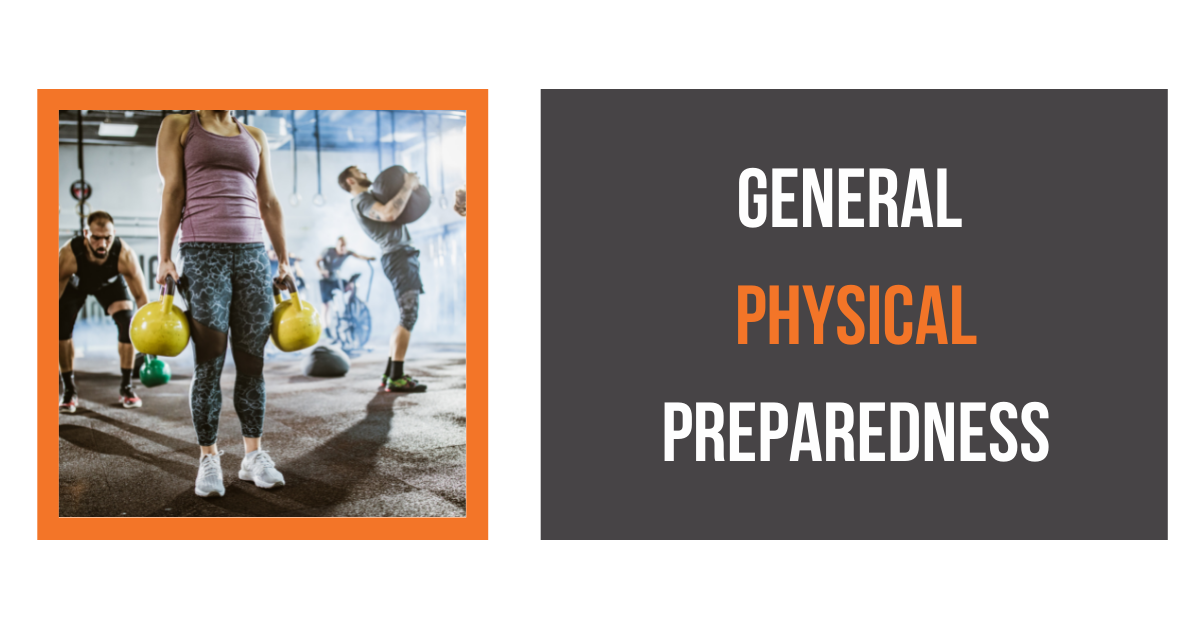GET IN TOUCH TODAY!
"*" indicates required fields

General physical preparedness is (GPP) could almost be described as training to train. Before any client or athlete jumps straight into a highly specialised programme they need to have built themselves a good foundation of fitness first that will pre-hab them from any future injuries, prevent overtraining and ensure they get effective gains in all of their future training programmes.
A GPP programme tends to focus on the following areas:
Before a client or athlete is subjected to very high loads and complex movement patterns their mobility needs to be assessed and if needed developed. New clients and athletes may not have adequate mobility to conduct exercises safely and effectively therefore the first priority is to help them achieve a sensible standard of mobility before they progress on to more complex exercises with heavier loads and intensities. A great dynamic warm-up at the start of the session will aid their mobility with the addition of developmental stretches conducted at the end of the session and in between training sessions.
The ankles, knees, hips, spine and shoulders must have good stability before they are subjected to high loads and explosive movements. Carrying out exercises on unstable surfaces such as Bosu balls and stability balls, and working unilaterally (One leg or one arm at a time) will help develop stability of the major joints and core.
Before we up the speed and intensity of any programme we need to be confident that our clients and athletes have good movement efficiency. Achieving a full range of movement with good alignment and posture whilst carrying out the following movement patterns is a great start:
I would also recommend covering multiple planes of movement and using different loads. For example, moving sideways as well as backwards and forwards, using bodyweight, kettlebells, dumbells, barbells and bands.
Muscular endurance is the bodies ability to overcome resistance for prolonged periods of time so repetitions should be fairly high 12+. This helps keep the load intensity low so the client and athlete and rehearse movement patterns under a low load and build muscular endurance at the same time. This is also a nice intensity to allow the muscles and ligament to strengthen without such a high injury risk.
Cardiovascular fitness is about the ability of the circulatory and respiratory systems to utilise oxygen to produce energy. This does not have to be developed using traditional cardiovascular machines such as cross-trainers and treadmills. In fact, a good old fashion circuit using a mixture of the movement patterns described previously with high repetitions will work the CV system beautifully.
This is simply your ability to get work done. Work capacity is also one of the most useful attributes you can have and the fastest to develop. I see improvements in work capacity with my clients after just one week of training with me. During the first week, their transitions from one exercise to the next can be quite slow but even by the second week, they are moving from one exercise to another a lot faster. The result being they can get more work done in a given time period. Their ability to work hard and recover fast has a great carry over into everyday life. It means they can run around with their kids without getting so out of breath and they can get a lot more work done in the garden before having to rest.
Check out my video below for a more visual explanation of General physical preparedness.
In the next article, I am going to talk about ‘body composition training’ and why that is important.
If you are a fitness enthusiast that would like to ‘make your passion your profession’ then get in touch via the form below 😃
"*" indicates required fields